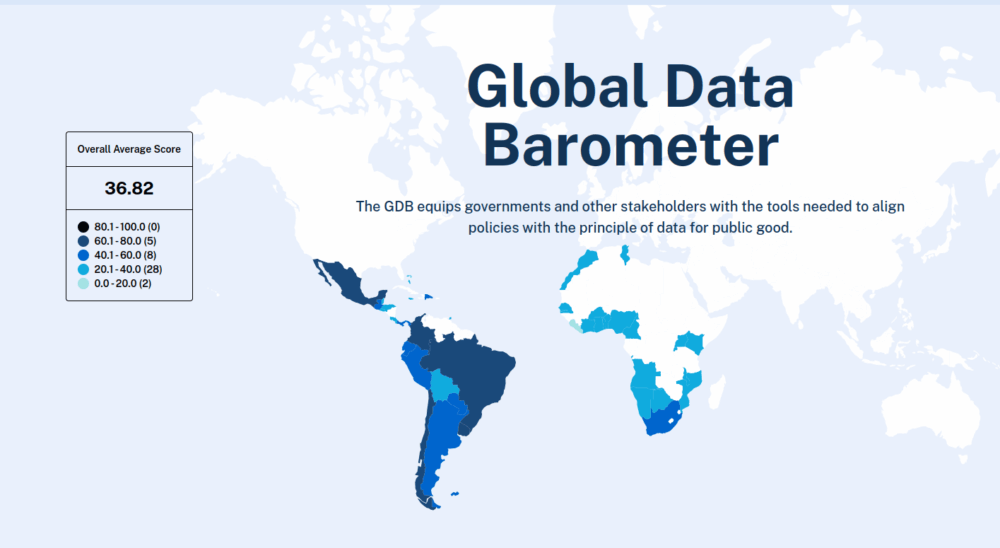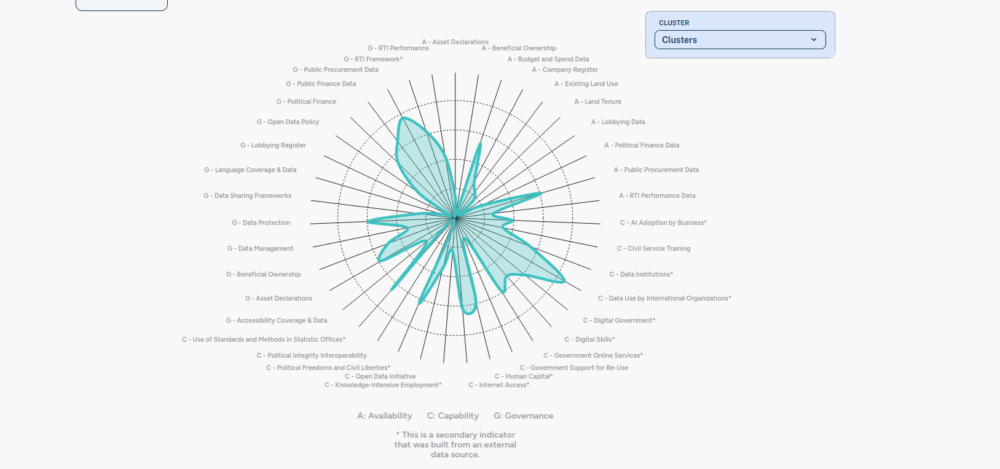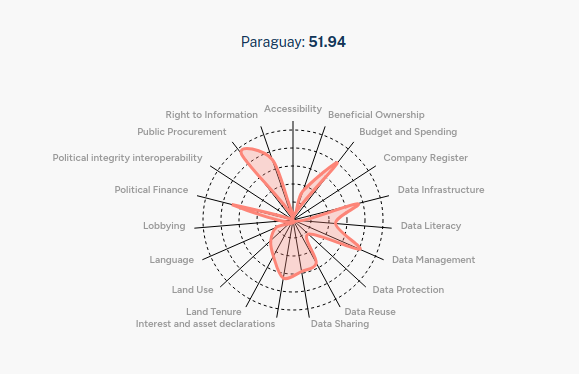
According to the Global Data Barometer (GDB), this barometer is not intended as a ranking table, but rather as a shared compass. While global debates increasingly focus on artificial intelligence, digital governance, data sovereignty, public transparency, and service delivery, the Barometer provides essential evidence to help shape national priorities and inform global agendas.
Open data and accessible formats fuel these innovations. For the GDB, data has become a key force shaping how societies function—and who they serve. It holds immense potential to drive inclusive growth, strengthen accountability, and accelerate timely responses to global challenges. However, access to high-quality, open, and usable data is facing growing restrictions.
Some authors, such as Verhulst (2024), refer to this moment as the “data winter”—a period marked by declining openness, increasing inequalities in access, and alarming fragmentation in the way data is governed and used. This trend not only threatens innovation in technologies such as AI, but also the democratic values that underpin trust, civic participation, and institutional transparency.
In such a complex and challenging landscape, having rigorous and up-to-date evidence on the data ecosystem is more vital than ever. The second edition of the Global Data Barometer emerges as a collaborative and comparative research effort, assessing the state of data for the public good across 43 countries, with a special focus on Latin America and the Caribbean (LAC) and Africa.
In Africa, the study brought together 19 researchers from 22 countries, while in LAC, 21 experts from 21 countries contributed, offering a rich diversity of contexts, experiences, and perspectives. The chapter on Paraguay was authored by Maricarmen Sequera and Giuliana Galli, who provided a critical and local perspective on the country’s progress in data governance and use.
The Latin American Initiative for Open Data (ILDA) played a central role in coordinating the data collection and regional analysis for Latin America. This project was made possible thanks to the generous support of the International Development Research Centre (IDRC) and contributions from the Inter-American Development Bank (IDB).

Key Findings from the Report
The Barometer tracks countries across four core dimensions—governance, capabilities, availability, and use—while also exploring cross-cutting areas such as AI readiness, inclusion, and data use. These are some of the main takeaways:

The Implementation Gap
Many countries have adopted data governance laws and frameworks, but there is a significant gap between policy and practice. Without strong institutions and dedicated capacity, even well-designed frameworks fall short.
The Role of Skills and Infrastructure
Data does not flow or translate into value without the right people and systems. In both Latin America and the Caribbean (LAC) and Africa, there is insufficient investment in public sector skills, training, and the infrastructure needed to manage and reuse data effectively.
AI Is Advancing Faster Than Governance
Artificial intelligence is increasingly present in national strategies, yet very few countries have clear policies guiding its ethical use. Governance frameworks rarely address key issues such as algorithmic bias, data quality, or accountability in AI-driven decision-making.
Open Data Requires Renewed Investment
Many countries once considered open data champions are now struggling to sustain their efforts. Legal mandates are not always matched by the technical implementation or resources needed. As a result, open data initiatives risk losing momentum.
Transparency Tools Are Missing
Key datasets that support transparency and anti-corruption efforts—such as lobbying registers, beneficial ownership data, and political finance records—are often missing or fragmented. This makes it difficult to follow the money or hold institutions accountable.
Inclusion Remains Largely Symbolic
Despite equity commitments, inclusive data governance remains the exception. Data is rarely published in indigenous or widely spoken non-official languages. Accessibility for people with disabilities is often treated as a recommendation rather than a legal requirement.
Interoperability Remains a Barrier
There is limited effort to connect datasets across government agencies—for example, in procurement, corporate data, or political integrity. Without shared standards or identifiers, it is difficult to track influence or assess the impact of policies holistically.
Where Does Paraguay Stand?
According to data from the 2024 Global Data Barometer, Paraguay ranks in the upper-middle tier within the Latin American and Caribbean context regarding the use and governance of data for the public good.
In the LAC region, countries scoring higher than Paraguay are:
- Brazil – 66.85
- Chile – 66.42
- Uruguay – 62.58
- Mexico – 62.51
- Colombia – 61.22
- Ecuador – 58.98
- Argentina – 58.23
- Peru – 55.31
- Panama – 53.23
- Paraguay – 51.94 ←
With a score of 51.94, Paraguay performs above the regional average. This places the country 10th out of 26 LAC countries, positioning it in the top 40% of the regional ranking.

This suggests that Paraguay has made considerable progress in areas such as data policy, institutional capacity, and the publication of relevant datasets. However, there remains room for improvement, particularly in enhancing data system interoperability and expanding technical capacities within the public sector to reach the levels of the regional frontrunners.
Who Leads in Latin America and the Caribbean?
The top performers in the region are:
- Brazil – 66.85
- Chile – 66.42
- Uruguay – 62.58
- Mexico – 62.51
- Colombia – 61.22
These countries stand out for their more consolidated legal frameworks, greater data openness, and stronger technical capabilities.
Who Is Falling Behind?
At the lower end of the scale are: El Salvador – 22.23, Belize – 23.09, Trinidad and Tobago – 24.49, Bolivia – 24.81 and Bahamas – 27.95
These countries face significant challenges, including low availability of open-format data, poor interoperability, and limited institutional capacity.
Regional Perspectives
The findings offer a nuanced view of different regional dynamics:
- In Latin America and the Caribbean, countries tend to show stronger institutional capacity and more developed digital infrastructure. However, inter-agency coordination challenges and declining political will are slowing progress.
- In Africa, there is strong momentum for policy reform, especially in areas like data protection. However, major implementation hurdles remain, related to infrastructure, financing, and institutional capacity.

 Defending those who defend us
Defending those who defend us